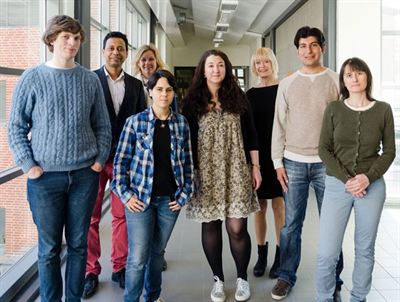Possible substitute for antibiotics to treat dangerous infections

A recently published paper identifies a new therapeutic target for the treatment of bacterial infections that regulates the immune response. Researchers at Lund University in Sweden have now found an "off" switch for destructive inflammation in infected kidneys that does not impair the anti-bacterial defense.
Infections continue to threaten human health. With remarkable genetic flexibility, pathogenic organisms outsmart available therapies. Fortunately, microbial versatility is matched by the host immune system, which evolves in dialogue with the microbes. Therapies that enhance the beneficial effects of the immune response represent a promising, but under-explored, therapeutic alternative to antibiotics.
A recently published paper identifies a new therapeutic target for the treatment of bacterial infections that regulates the immune response. Researchers at Lund University in Sweden have now found an "off" switch for destructive inflammation in infected kidneys that does not impair the anti-bacterial defense.
The challenge is to strengthen the good, antibacterial defence without causing tissue damage. Inflammation accompanies most infections and symptoms like fever and pain are the price to pay for an effective defense.
''Here we address how to avoid the exaggerated immune response to severe infections, which can lead to tissue destruction and even organ failure'' says Manoj Puthia, researcher at Lund University, Sweden and lead author of the study.
''We knew that specific transcription factors regulate innate immune responses to bacterial infection and that the outcome of infection be beneficial or destructive, depending on how these regulators work'' says Professor Catharina Svanborg. ''We have also identified genetic variants in susceptible patients that support this concept. ''
Using mice lacking the closely related transcription factors IRF-3 or IRF-7, we were surprised to find that IRF-3 and IRF-7 control different facets of the immune response to kidney infection and that this determines the susceptibility to acute pyelonephritis, which is a severe, potentially life-threatening bacterial infection of the urinary tract.
In contrast to mice lacking IRF-3, which became very ill, Irf7-/- mice were protected from infection and chronic inflammation, suggesting that suppression of Irf7 might be beneficial.
''Based on these findings identifying Irf7 as an immunotherapeutic target, we used siRNA therapy to silence Irf7 and were able to demonstrate protection in susceptible mice,'' says Dr. Puthia.
Infections remain the major cause of the deaths worldwide, especially in developing and poorly developed areas. While antibiotics have greatly reduced illness and mortality, many pathogens have developed resistance and we are facing a global crisis.
"We propose to fight infections by learning from the innate immune system. We also need to define why the immune system is not protecting certain patients and learn to replenish these defects by boosting the ''good'' immune response."
*IRF = Interferon Regulatory Factor
### ###
Contact
Professor Catharina Svanborg, Faculty of Medicine Lund University
Email: catharina.svanborg@med.lu.se,
Tel: +46 (0)46 222 70 44; +46 (0)70 942 65 49
Article
Puthia, M. et al. (2016) RF7 inhibition prevents destructive innate immunity - A target for nonantibiotic therapy of bacterial infections
Science Translational Medicine 27 Apr 2016, DOI: 10.1126/scitranslmed.aaf1156
http://stm.sciencemag.org/content/8/336/336ra59
Lund University was founded in 1666 and is regularly ranked as one of the world’s top 100 higher education institutions. The University has 41 000 students and 7 500 staff based in Lund, Helsingborg and Malmö. We are united in our efforts to understand, explain and improve our world and the human condition.
Tags:


